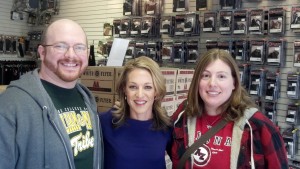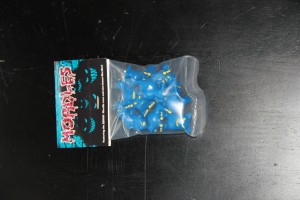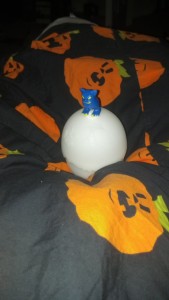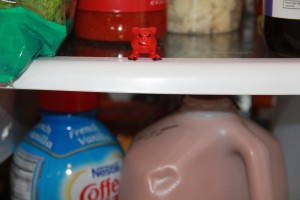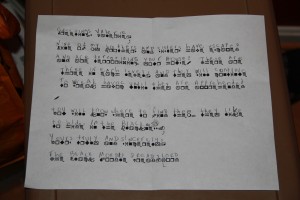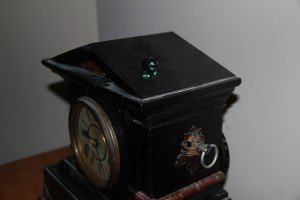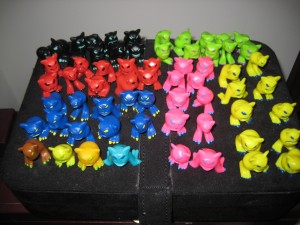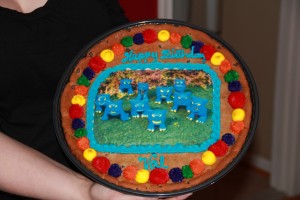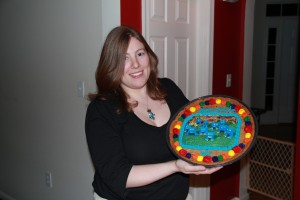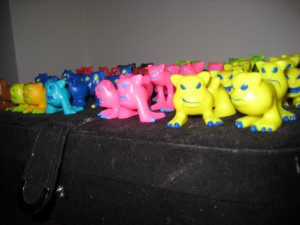Happy New Year! This week’s post, on the theme of holidays, comes to us from Val Muller, author of the children’s mystery series Corgi Capers. You can learn about her other work at valm16.sg-host.com.
* * *
The Frozen Rescue
by Val Muller
Katy stepped onto the walkway. The frigid air felt good after the heat of thirty drunken bodies packed into Beth’s apartment. Colored lights from Beth’s LED tree lights reflected on the snow, and for a moment it seemed like Christmas again.
But it was New Year’s, Katy’s least favorite holiday. It was like a really big Sunday night, and a frigid one at that—an end to vacation and magic and time with family. A return to the hum-drum. The ultimate lead-up to a never-ending Monday morning. If Katy had her way, she would have spent the evening on the couch watching Doctor Who, drinking root beer, and working on her illustrations.
But of course Beth would hear none of that. “You can’t work all the time,” she’d said.
“But I like drawing,” Katy had reminded her. “It doesn’t feel like work.”
“It’s still work. Besides, you’re never going to meet anyone if you never leave your house. You’re coming to my party. You’ll like it, and maybe you’ll meet Mr. Perfect. He’ll help you forget about the Creepster.”
Katy shook her head, drawing her leather jacket against the chill of memory. Beth was, of course, referring to her last dating debacle. Sylvester had started out boyfriend material, but he got creepier as the year went on. Katy broke it off right before Thanksgiving. He’d unofficially moved in, so there was much sorting out to do, and she was finally feeling over it. But now she needed Katy time—not a party.
A rowdy couple burst out the door behind her, two drinks in the female’s hand, and a cigarette and lighter in the male’s. They were laughing hysterically, and the woman slid into a snow pile at the edge of the walkway, snapping the heel of her shoe. That brought more raucous laughter.
Katy sighed and shuffled down the walkway. The stars peeked out from a gossamer veil, backlit by the nearly-full moon. She remembered her childhood fascination with wishes and wished this year for a chance with someone like Sylvester, only not so creepy. Beth lived in a small housing development in one of two rows of townhomes. Katy knew the path well, and she decided to walk the loop to kill time before midnight. No way would Beth let her leave before then. At 12:01, Katy promised herself, she could go home and maybe work on an illustration or two before bed.
She sauntered past the mailboxes, enjoying the Christmas décor everyone had left out. That was what she missed most about childhood: time with family. Real, true family she cared about. She wondered if she’d ever meet someone who would feel like family.
A hiss-screech interrupted her musings, and she paused, pricking her ears. She held her breath to make out the sound. If she didn’t know any better, she’d say it was a mouse singing—too much Nutcracker Ballet this year, she scolded herself. Katy shuffled along the path, trying to keep her boots as quiet as possible on the pathway. This hiss-screeching continued.
“What is that?” she asked aloud.
It was coming from an alley, a narrow, paved access leading to the community’s dumpster. The back of the alley was lined with a row of bushes, a buffer between the residents and the dumpster. The hiss-screeching grew louder. Katy knelt down near the bushes and pulled back a snowy green branch. This time it was she who screeched. What she saw was a gray-and-black striped cat, its eyes frozen open, its tongue hanging out, blue.
Katy squealed and propelled herself upward involuntarily, slamming into something. She screamed again and trashed her arms. Strong hands grabbed her own.
“Calm down,” someone said. “It’s okay. I didn’t mean to startle you. I heard a hissing, screeching noise, and I came to check it out. Was it you making that noise?”
Katy shivered, tears already forming in her eyes. “No, it wasn’t me. I mean, I came…I came to check it out, too, and yes, that was me screeching just then, but no, no—it wasn’t me.”
“Whoa, there, calm down,” the voice said. “Take a deep breath.” Katy breathed long enough for her brain to register who was talking to her. It was a man, a bit taller than her. His face looked kind, but concerned. He wore a red and black knit cap and a long wool coat. “I’m Kent,” he said. “I didn’t mean to scare you.”
“You didn’t scare me,” Katy said, trying to speak more slowly. “I mean, you did scare me, but that isn’t why I was scared.”
“What?”
“Just look,” she said, pointing to the bush. “Wait, no—don’t look!”
But it was too late. Kent had already moved past her and peeked at the dead cat in the bushes. “Good grief,” he said. “No wonder you were spooked. That’s so sad. Poor cat looks like it froze to death. I wonder why it didn’t seek shelter somewhere.”
A hiss-screech interrupted his musing. “There’s something else,” he said.
“No, don’t look again!”
“It’s okay.” He reached into his pockets for a pair of leather gloves, which he slipped on. He took a deep breath, and Katy could see the hesitation in his face, but he moved quickly, with resolve. “Don’t look,” he said.
Katy turned away, but she could hear him moving the corpse.
“Oh my!” he said.
Katy spun around to see him squatting over. He stood slowly, his hands full of something. The something was hissing and squealing.
“There are two kittens here,” Kent said. “It’s why the cat didn’t move. Why she froze to death instead. She was protecting her kittens. Poor thing—I’ll come back tomorrow to bury her.” He brought his gloved hands closer to Katy, displaying two tiny kittens. “These were all that were there.”
“Oh!”
“I’m going to take them home with me—nurse them to health,” he said, examining them.
Katy’s mind flashed with something Beth had said. “Why don’t you get a pet? At least then you’ll stop thinking about Sylvester?”
“I’ll take one,” Katy offered. “That is—if you don’t want two.”
Kent smiled. “I knew there was a reason I left that party. I mean, aside from my usual dislike of parties. New Years has always been such a sterile holiday for me. Nothing magical ever happens. Not like Christmas.” He looked up at Katy. The moon reflected on his face. “Except tonight is different, I guess. Must have been some left over Christmas magic this year.” He looked around and smiled. “It’s still an hour or two until midnight. These kittens need to be somewhere warm, but I’m not bringing them back to the party I was at. I live not too far from here—in a townhome in the next development over. Not a far walk.”
Katy reached out to pet one of the kittens, and she grabbed Kent’s arm to steady herself. “I drove here,” Katy said. “I’ll get my car. I’ll drive us.” They walked to her car together, Kent holding the kittens, and Katy couldn’t help feeling like a kid again—the whole evening fitting as comfortably as family.
***
The Spot Writers- our members: RC Bonitz http://www.rcbonitz.com Val Muller https://valmuller.com/blog/ Catherine A. MacKenzie http://writingwicket.wordpress.com/wicker-chitter/ Deborah Dera http://www.deborahdera.com
